Description
ABSTRACT
Counting the Cost and Consequences: Lessons for Nigeria from Canada, South Africa, and the UK, on Small Companies’ Income Tax Rates
Stanley Oghenevwairhe Omotor*
This article examines the small companies’ zero corporate income tax (CIT) rate in Nigeria compared to similar tax incentives in Canada, South Africa, and previously in the United Kingdom. The article shows that contrary to reasons often canvassed by policymakers and politicians for introducing zero and low CITrates, evidence shows that the implications of such CIT rates often defeat the purpose for their introduction because such CIT rates result in unintended consequences to the tax system by encouraging tax arbitrage behaviours and inappropriate tax avoidance arrangements. Drawing from the experiences of other countries, the article posits that it is not a good idea to provide zero CIT rates for small businesses in Nigeria, given its severe
implications for the Nigerian economy.
Keywords: Corporate Income Tax, small businesses, small corporations, and tax avoidance
INTRODUCTION
In January 2020, the Nigerian government introduced a zero companies income tax (“CIT“) rate for small companies1 under the Finance Act 2019 (the “Act” or “FA“). In overhauling the Nigerian tax system with significant amendments, including amendments to the Companies Income Tax Act (“CITA“),2 the Act reduced the CIT rate for “medium-sized” companies3 from 30% to 20%. Before this amendment, all companies in Nigeria, irrespective of their size, were required to pay CIT at a flat rate of 30%. However, the Act has now introduced a floating CIT rate system based on the size of a company’s “gross turnover”. Only large companies4 are now required to pay CIT at 30%. According to the Nigerian government, introducing the zero CITrate fosters small business growth and boosts job creation in Nigeria.5
* LL.M (Canada), B.L (Nigeria), LL. B (Delta), ND (Ozoro). Stanley is a senior consultant at KPMG Law LLP Canada, a law firm affiliated with KPMG LLP Canada.
THE GRAVITAS REVIEW OF BUSINESS & PROPERTY LAW Vol.13 No.4
- In this study, the term “small companies” is used interchangeably with “small businesses”. The Finance Act 2019 defines a small company as one whose gross turnover does not exceed N25 million. Section 105 CITA.
- Cap C21, LFN 2004. All references to the CITA in this article include its amendments by the FA.
- The Act defines medium-sized company as one whose gross turnover exceeds N25 million but less than N100 million. Section 105 CITA.
- The Act defines a large company as one that is neither a small company nor a medium-sized company. Section 105 CITA.
- ‘Public Hearing on the Finance Bill’ ; See also statement by Nigeria’s Minister of Finance, Budget and National Planning, Zainab Ahmed, in Titobioluwa Okunade, “Nigeria exempts small businesses from Company Income Tax”, ( Nairametrics, 1 June 2020) accessed 3 December 2022.

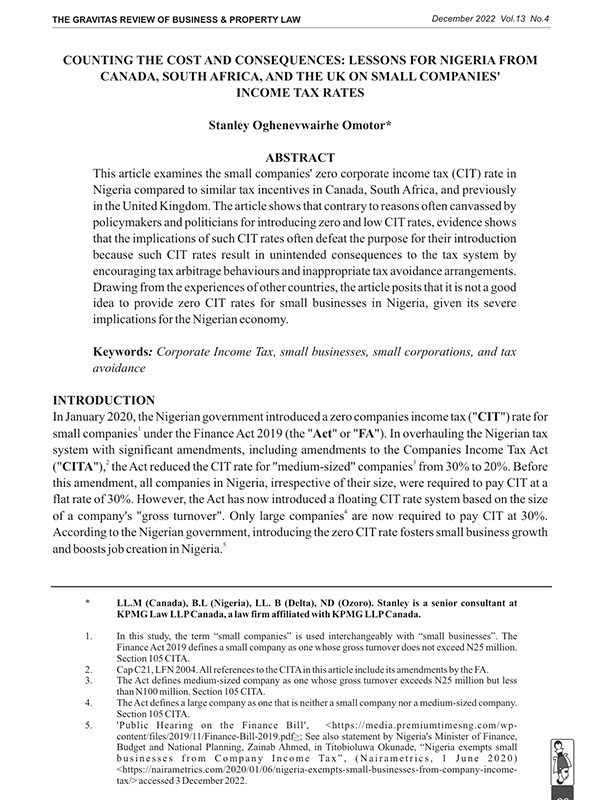
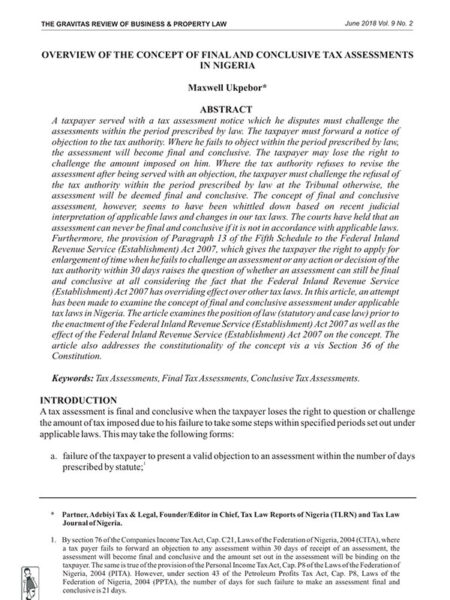
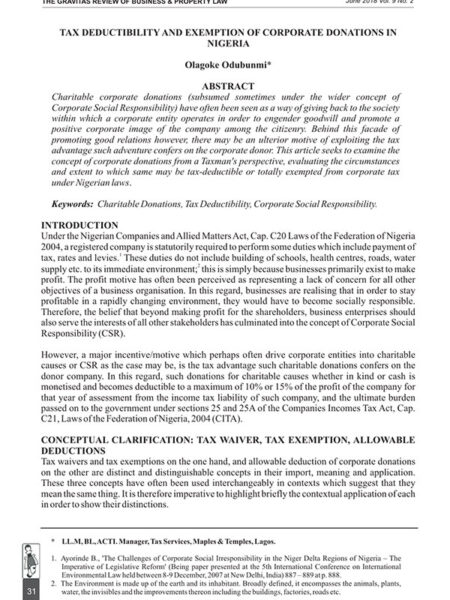
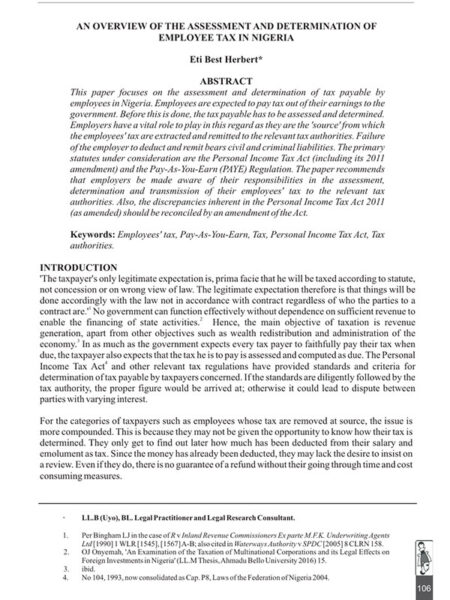
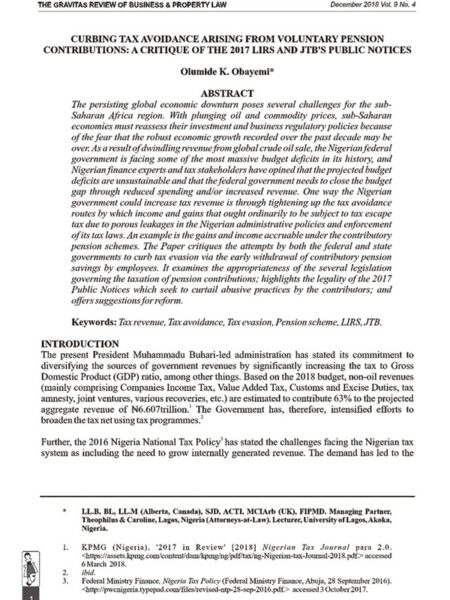


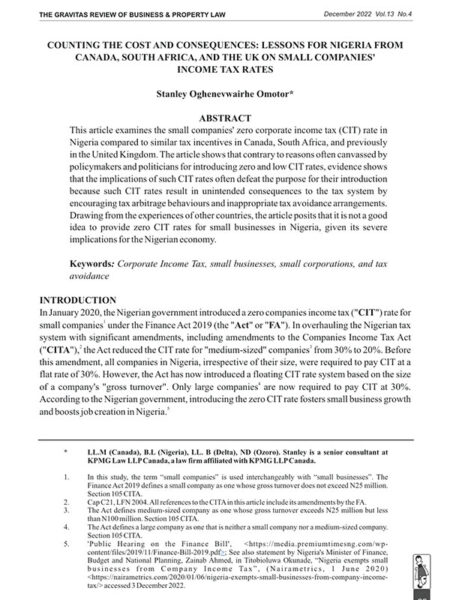
Reviews
There are no reviews yet.